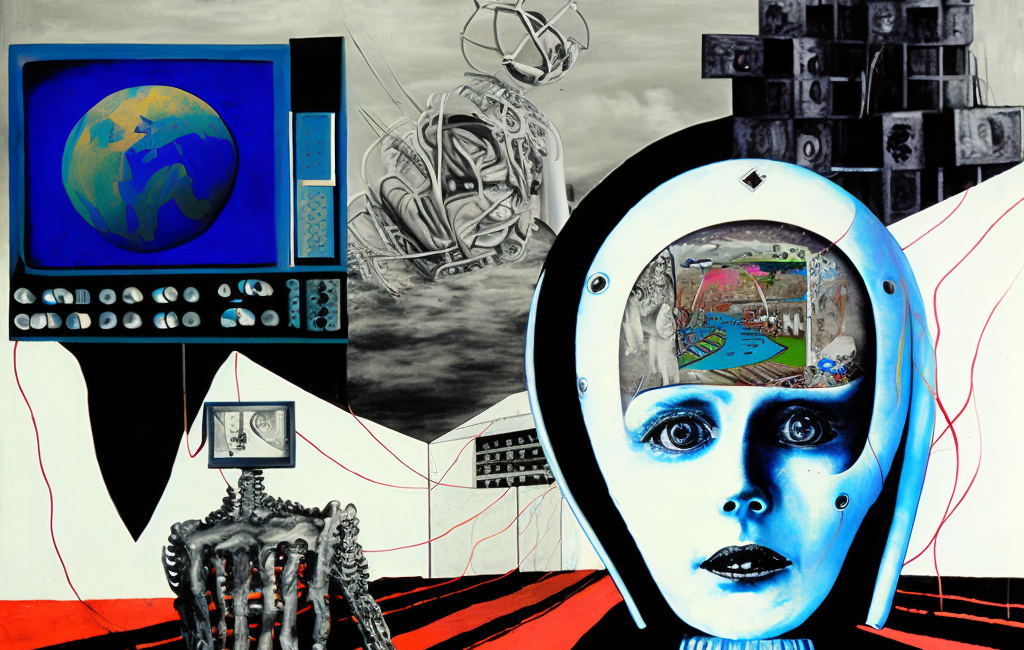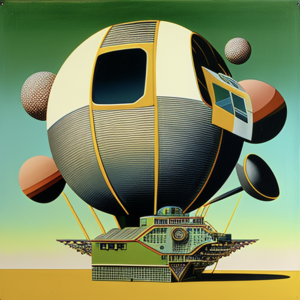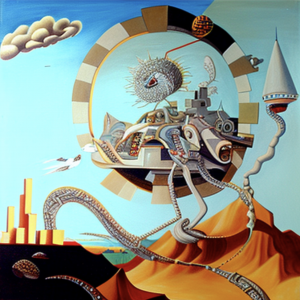The Future of Humanity
As technology continues to evolve and shape our world, it’s likely that our traditional models of society will continue to be challenged and reshaped. The two major social movements of today are socialism and capitalism. Socialism is based on the idea that the division of labor and collective effort could lead to a utopian society. Capitalism is a system in which individuals or businesses own and operate the resources necessary for production, and economic activity is driven by market competition and profit-seeking behavior. However, as we move towards a more technologically advanced society with AI and smart robots, the need for humans to perform certain types of work will likely decrease. This may lead to a shift in our understanding of the value of work, and what it means to live a meaningful life.
Socialism was not utopia
Socialism, as a political and economic system, was based on the idea that collective ownership and control of the means of production could create a more just and equitable society. Under socialism, the division of labor was still an important concept, but the goal was to ensure that the fruits of labor were distributed equally among all members of society. While socialism was intended to create a more equal society, it often failed to deliver on its promises in practice.
Notwithstanding the centralized control and evils such as corruption that breed from the socialism movement, a major challenge was the inability to properly incentivize individual effort and innovation. In a system where the fruits of labor are distributed equally, there was less incentive for people to work hard or to take risks in pursuit of new ideas. This lack of individual initiative lead to stagnation and a lack of progress over time.
As we move towards a more technologically advanced society with AI and smart robots, the need for human labor may decrease significantly, and the traditional division of labor may become irrelevant. The future where work is no longer the primary way people derive meaning from their lives, represents a stark contrast to the socialist model. Rather than focusing on the collective ownership of the means of production and the redistribution of wealth, the future may be characterized by a more individualistic approach, with people pursuing their own desires and abilities unhindered by traditional barriers.
In this sense, the future may represent a departure from the socialist vision of society, which was built on the idea of shared sacrifice and collective effort. While the goals of socialism, such as social justice and equality, remain important, the methods for achieving these goals may need to be reimagined in light of the technological changes we are experiencing.
While socialism and the envisioned future represent contrasting visions of society, it’s important to recognize that they both emerge from a desire to create a more just and equitable world. The challenge for us as a society is to find new ways of achieving these goals in a world that is rapidly changing.
Capitalism will be lost
Capitalism is a economic focused system that centers on the private ownership of the means of production, where individuals are free to accumulate wealth through market transactions. It is based on the idea that self-interest drives people to work hard and innovate, leading to economic growth and prosperity. In a capitalist society, the forces of supply and demand determine the distribution of goods and services. This model has been highly successful in generating wealth and improving living standards, but it has also been criticized for perpetuating inequality and focusing on profit at the expense of social and environmental concerns.
However, as technology advances and automation replaces traditional work, the future of work may no longer be the primary purpose of most people’s daily lives. This could lead to a fundamental departure from the capitalist model, as the traditional economic incentives that drive individuals to pursue their own self-interest may no longer apply. Instead, people may become more focused on their personal well-being and the well-being of their communities.
In this not-so-distant future, there could be a challenge to the traditional capitalist notion of the individual as a self-interested, rational actor. With more time and freedom, people may become more invested in collective action and shared responsibility, rather than individual competition. The emphasis may shift towards community-building and social cohesion, and away from the accumulation of wealth and material possessions.
Overall, while capitalism has been a successful economic system in generating wealth and prosperity, it may not be suited to the needs and values of a future society where work is no longer the primary driver of human activity. A new economic model that prioritizes social and environmental concerns, and encourages collective action and shared responsibility, may emerge as a result.
The Future Shift
One possible future is that we may begin to focus less on the existential purpose of work, and more on other desires and abilities that are unhindered by traditional barriers like glass ceilings and salaries. We may see a greater emphasis on creativity, leisure, and exploration, as well as a greater focus on self-actualization and personal growth.
At the same time, we may also see new challenges emerge as our traditional systems of value and meaning are upended. For example, if work is no longer the primary way that people derive meaning from their lives, we may need to develop new systems and structures to help people find purpose and fulfillment. Additionally, we may need to address issues related to wealth inequality and access to resources, as the benefits of technological progress may not be distributed evenly across society.
It seems inevitable that as our technological capabilities continue to expand, we will be faced with new challenges and opportunities, and our traditional models of society will need to adapt in order to keep up.
In conclusion, the continued evolution of technology will likely have a profound impact on the way we live, work, and interact with each other. As we move towards a society with greater automation and AI, our traditional models of society may no longer apply, and we may need to develop new ways of thinking about work, meaning, and purpose. While this shift may present challenges, it also presents opportunities for us to reimagine our lives and societies in ways that are more equitable, sustainable, and fulfilling. Ultimately, the future is uncertain, but by embracing change and working together, we can help to shape a future that reflects our shared values and aspirations.






